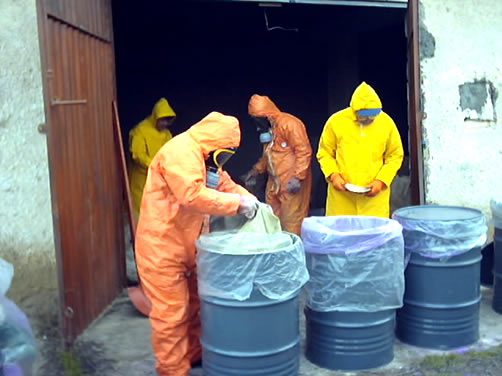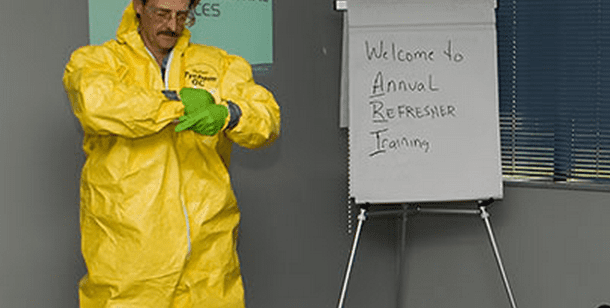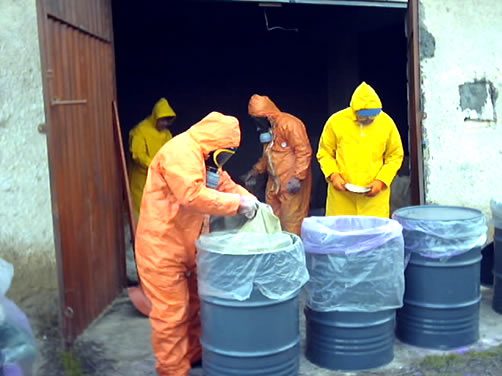
From a business standpoint, facilities are always looking for ways to cut costs. You may think, “if we got licensed we could transport hazardous materials ourselves and save on costs.” This leads to questions we often receive from hazardous waste generators, “What’s the big deal?” or “Why can’t anyone become licensed and transport wastes themselves?”. These are most easily answered by breaking the reasons down.
1. It Can Take Years To Become Established
It can take years to obtain a license to transport hazardous waste and hazardous materials. There are several trainings required, and proper licensing needs to be acquired. For every type of hazardous waste, or even non-hazardous waste, there are licensing requirements and each requires a certain level of training time. Most companies don’t have several years to spare, they need the materials moved now or risk receiving penalties and fines from the EPA, DEP or even OSHA.
2. Must Have Licensing Before You NEED To Haul Waste
You must obtain a license before you need to haul the waste. For the same reason as already mentioned; waste cannot just sit around waiting to be properly recycled without risking a visit from the EPA, DEP or even OSHA. Therefore it makes sense that if a business knows it’s going to need to recycle waste, it should look into receiving licenses before they get to that point. For many companies this rarely is a forethought when starting a business which makes receiving the licensing that much more difficult.
3. A Large Investment is Necessary
There is a great deal of investment of both funds and time to receive the proper licensing. A training course to become licensed can range anywhere from $50 per person to $500 per person, and that is multiplied by the number of courses that are required. Then there are licensing fees where businesses are required to pay a certain fee to become licensed. Depending on what kind of waste is being transported a certain kind of truck, typically a box truck, is required. The vehicle must have the correct placards to indicate it is transporting hazardous materials. The number of licenses required really varies by state but it is important to make sure you are compliant in all states you transport the waste in, not just the state you are located in or the location of the generator facility. Between the time spent, fees, training costs and then followed by disposal fees, many companies just don’t have the money budgeted to go towards this expense. This makes going with a third-party vendor most cost effective option.
4. Cost of Hazardous Waste Insurances Can Be Costly
To transport waste a facility must have proper insurance for both the facilities where the waste is stored and the trucks that will be transporting the waste. Typical business insurances a hazardous materials transporter must maintain are general liability, automotive coverage, and pollution liability. Depending on the limits required and the type of waste being hauled, the insurance can be one of the most costly aspects of transporting waste.
5. Planning For Surprise Additional Fees
There are always surprising fees that pop up and out of nowhere, it seems, in order to maintain licensing and to ensure proper handling. Part of the required fees include monthly and quarterly reports of hazardous waste transported and disposed of. Depending on how much waste is transported will vary how small or large the fee is. Licenses are also required to be renewed yearly which not only means more money, it means more time spent doing paperwork. Not to mention all the potential late fees for late payments, improper documentation, etc.
6. Understanding Proper Handling & Transportation 
In order to stay in compliance, a company must follow a set of regulations set in place by the EPA, DEP, and OSHA. Keeping up on the ever changing regulations is difficult and takes a great deal of time. Aspects of these regulations include properly handling hazardous materials in a way that minimizes the potential harm to the environment and people. Sometimes handling hazardous wastes can seem like common sense but many hazardous wastes have effects and reactions to things that are not easily identified. An extensive knowledge and understanding of these hazardous wastes is necessary. To properly transport hazardous waste there are a series of requirements surrounding how the waste is packaged, carried, transported, and even the stickers that go onto the hazardous waste packaging.
7. Increased EPA & DEP Interactions
Working with the Environmental Protection Agency (EPA) and Department of Environmental Protection (DEP) can be difficult and overwhelming if you haven’t worked with them before and are not familiar with all the regulations. Their job is literally to find fault in your business and they will not stop until all stones are turned. Although their main focus is protecting the environment, they do so by being very strict with all of their processes and regulations. Becoming informed and knowledgeable about their regulations takes a great deal of time to understand and process.



